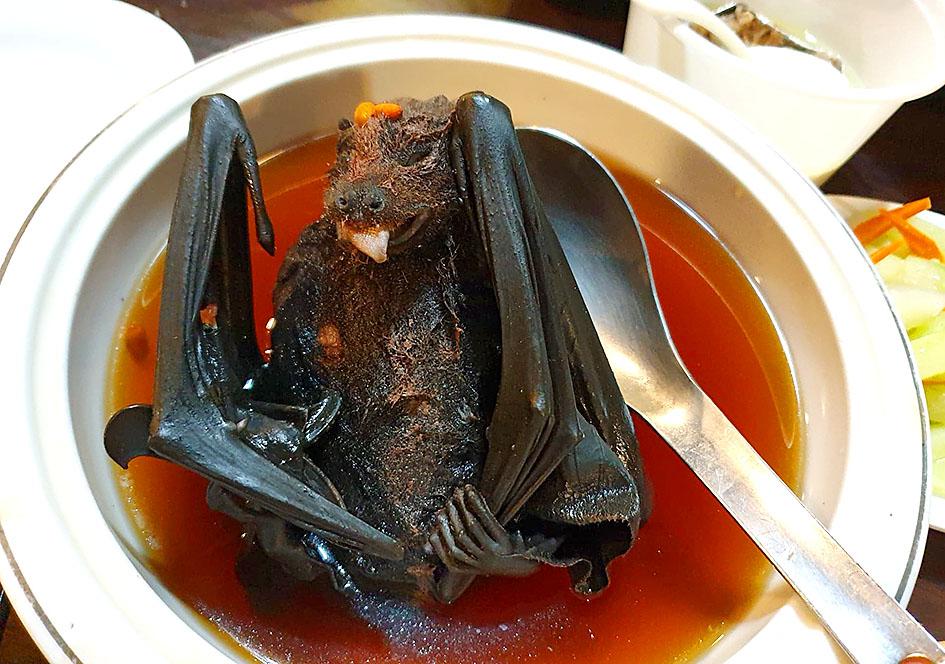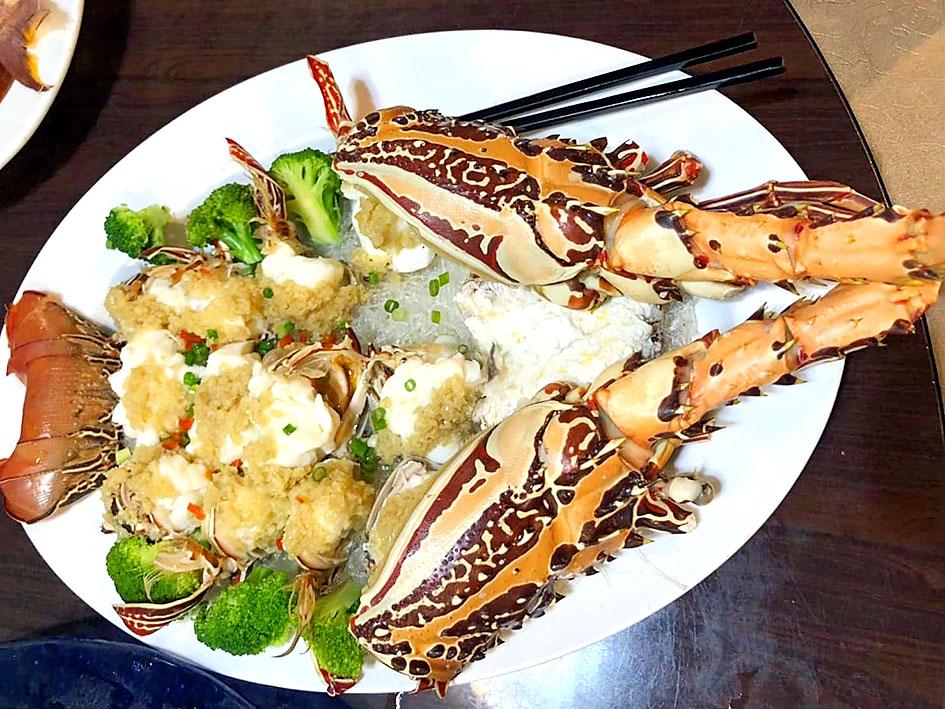As of the second week of April, just a handful of countries have yet to report cases of the novel coronavirus. One of them is Palau, a Pacific island chain that has had diplomatic relations with Taiwan since 1999.
In early March, when a newly-arrived US citizen showed symptoms of COVID-19, doctors in Taiwan used telemedicine technology to help Palauan physicians take samples from the patient. These were flown to Taiwan for testing; the results were negative.
Palau might so far have evaded a health crisis, but its tourism-driven economy can’t avoid other consequences of the pandemic.

Photo: Katy Hui-wen Hung
“We noticed the impact of COVID-19 very early on, because lots of tourists canceled their trips to Palau. Also, a lot of expatriates left the country. It’s effected nearly every part of the economy, because so many businesses rely on tourism,” says Tina Cheng (鄭欣庭), who helps her parents run 7-EAT Restaurant (美人魚餐廳), one of the most expensive restaurants in Koror, Palau’s largest city. Cheng’s father became 7-EAT’s manager in 2010; the boss is Palauan.
“To reduce expenses, we’ve cut down our hours of operation,” says Cheng, who says that the restaurant is also adjusting its menu to make it more delivery-friendly. So far, spicy fried chicken and sweet and sour pork, both served with steamed rice, have proved to be popular take away items with locals customers.
“Right now, we don’t worry about getting the ingredients we need, but if shipping is disrupted, there will be a problem,” she adds.

Photos: Katy Hui-wen Hung
In the past, 7-EAT catered mainly to tourists from Taiwan and China, as well as other non-locals. The menu includes lots of seafood, but Taiwanese diners especially liked a crocodile dish in which the meat is cooked the same way as Dongpo pork (東坡肉), and not just for its taste. Certain parts of the crocodile’s anatomy, such as palms, are rich in collagen — a natural beauty product that enhances skin elasticity and reduces wrinkles.
Gonzo gourmands sometimes ordered a dish now steeped in notoriety: A soup made with ginger and goji berries, with protein in the form of a stewed fruit bat. Earlier this year, amid speculation that the coronavirus originated in bats, photos and video clips showing people eating bats have been circulating online. Some of these images came not from China — as many people assumed — but from Palau, where 7-EAT wasn’t the only restaurant to offer an iteration of a traditional local delicacy.
Cheng says, from now on, tourists will be too scared to order bat soup. But she points out that locals are still eating it.
“Palauans have been eating bat soup for years, and never suffering any sicknesses as a result,” Cheng says.

On April 26, The Lancet published a letter from two doctors at Taichung-based China Medical University Hospital (CMUH) warning that “Taiwan’s Health Care System is on the Brink of Collapse.” The authors said that “Years of policy inaction and mismanagement of resources have led to the National Health Insurance system operating under unsustainable conditions.” The pushback was immediate. Errors in the paper were quickly identified and publicized, to discredit the authors (the hospital apologized). CNA reported that CMUH said the letter described Taiwan in 2021 as having 62 nurses per 10,000 people, when the correct number was 78 nurses per 10,000

As we live longer, our risk of cognitive impairment is increasing. How can we delay the onset of symptoms? Do we have to give up every indulgence or can small changes make a difference? We asked neurologists for tips on how to keep our brains healthy for life. TAKE CARE OF YOUR HEALTH “All of the sensible things that apply to bodily health apply to brain health,” says Suzanne O’Sullivan, a consultant in neurology at the National Hospital for Neurology and Neurosurgery in London, and the author of The Age of Diagnosis. “When you’re 20, you can get away with absolute

May 5 to May 11 What started out as friction between Taiwanese students at Taichung First High School and a Japanese head cook escalated dramatically over the first two weeks of May 1927. It began on April 30 when the cook’s wife knew that lotus starch used in that night’s dinner had rat feces in it, but failed to inform staff until the meal was already prepared. The students believed that her silence was intentional, and filed a complaint. The school’s Japanese administrators sided with the cook’s family, dismissing the students as troublemakers and clamping down on their freedoms — with

As Donald Trump’s executive order in March led to the shuttering of Voice of America (VOA) — the global broadcaster whose roots date back to the fight against Nazi propaganda — he quickly attracted support from figures not used to aligning themselves with any US administration. Trump had ordered the US Agency for Global Media, the federal agency that funds VOA and other groups promoting independent journalism overseas, to be “eliminated to the maximum extent consistent with applicable law.” The decision suddenly halted programming in 49 languages to more than 425 million people. In Moscow, Margarita Simonyan, the hardline editor-in-chief of the